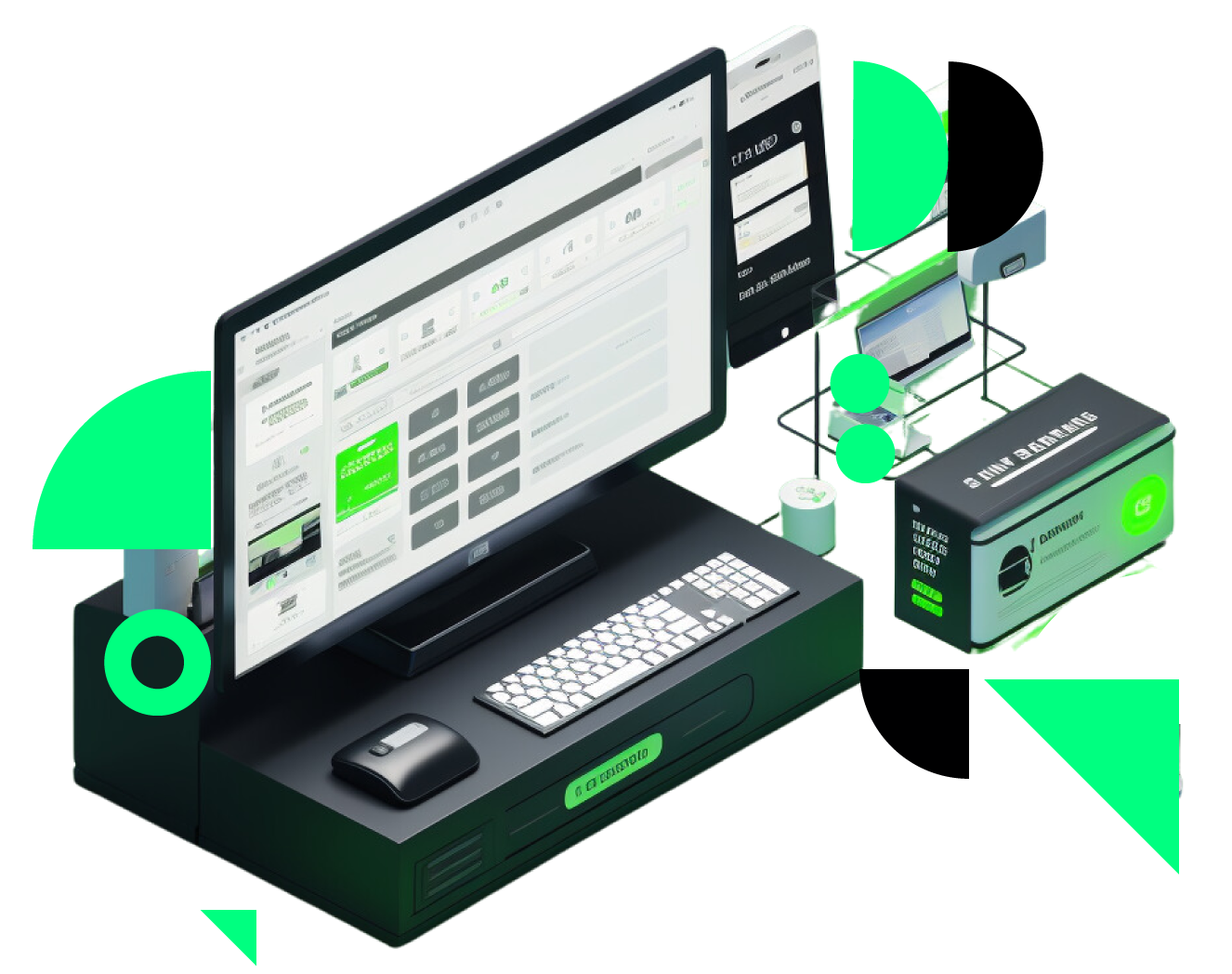E-Commerce Bottleneck 1: Missing Customer Data in the Store Frontend
Discover how brands and retailers can solve one of their most common e-commerce bottlenecks: incomplete or siloed customer data across various...

Shopify is the platform of choice for many brands and retailers looking to launch an online store. And once order volumes and complexity start to ramp up, Shopify Plus integrations that leverage the power of composable commerce are a logical next step – particularly for merchants with international ambitions.
In this article, we'll explain how larger companies can leverage the full potential of Shopify Plus through targeted capability extensions such as distributed order management (DOM), using modern e-commerce concepts to improve the customer experience and optimize all processes. This powerful combination enables enterprises to plan better, sell more, grow faster and cut waste.
Shopify offers various standard plans charged at a flat rate (the Advanced plan currently costs $299/month), which enable merchants to hit the ground running with their online business.
So what does Shopify Plus add to the mix? Pitched as a scalable and highly customizable enterprise-level solution, Shopify Plus enables merchants to do so much more:
These extra capabilities do come at a price however: Shopify Plus plans start at around $2,500/month, and larger businesses are charged on a revenue-based model. So these plans are a better fit for companies with revenues above $1m.
Although Shopify is one of the most flexible and powerful platforms available, there are some functional limitations when handling complex processes and large order volumes, or when expanding internationally.
At this stage, some core business activities are best placed in a Commerce Operations Platform like Actindo, to ensure that Shopify fully supports the growth of your business.
You might already be seeing the following challenges:
This is where extensions and third-party integrations come in. By using specialized tools, merchants can create customized solutions that go beyond Shopify's standard offerings. Let’s look at how composable commerce can help…
The term “composable commerce” refers to an approach in which individual components of an e-commerce system can be selected and combined independently of one another.
The advantage of this approach? Maximum flexibility and adaptability, using best-of-breed microservices (ideally based on MACH principles).

Composable commerce offers a way to create a modular architecture where merchants only integrate the solutions and services they really need. An ecosystem of best-of-breed solutions that can be dynamically expanded and scaled, rather than a monolithic structure from one provider.
A typical example is the integration of specialized payment, logistics or customer experience solutions that perform specific tasks better than the native Shopify tools.
Distributed Order Management (DOM) refers to the coordination and management of orders across multiple warehouse, distribution and sales locations. For Shopify merchants operating in multiple countries or regions or pursuing a multi-channel strategy, DOM is essential.
A DOM system allows orders to be managed flexibly across different locations. Delivery times and logistics costs can be optimized. For merchants using Shopify, this means they no longer have to rely solely on the integrated order management functions, but can use a powerful solution that incorporates all locations and logistics processes.

In a Shopify-powered retail stack, a DOM system can be integrated via APIs or specialized partner solutions that harmonize smoothly with the existing setup.
For companies in the enterprise segment, the combination of Shopify Plus, Composable Commerce and DOM provide the foundation for a highly scalable and customizable e-commerce platform.
Best practices include:
Many successful brands and retailers already use Shopify Plus in combination with composable commerce and DOM to optimize their global business processes.
Companies such as Kylie Cosmetics, Gymshark and Heinz have shown how these solutions can both improve the customer experience and streamline their back-end processes:

Kylie Cosmetics is a US brand founded in 2014 by influencer Kylie Jenner. Early success with products like “Kylie Lip Kits”, high-profile collabs and lots of influencer marketing helped the company to hit a $1.2bn valuation. Built on Shopify Plus, Kylie Cosmetics uses various composable technologies including search tech from Algolia to improve the shopping experience.

Gymshark is a UK fitness clothing brand. Black Friday woes in 2015 saw the company replatform from Adobe Magento to Shopify Plus, and it now generates revenues above $700m annually from 14 international websites. Their commerce stack combines Shopify Plus with various MACH-certified technologies, including content management from Contentful and search tech from Algolia.

Heinz needs no introduction, as the world’s favorite brand of tomato ketchup. During the Covid crisis, the company reportedly launched a Direct-to-Consumer website in the UK in just one week with Shopify Plus, offering delivery-to-door service and bundled product subscriptions.
Actindo combines powerfully with Shopify Plus to enable omnichannel order and inventory management and accounting.
 Once orders are placed in Shopify, our integration steps in and downloads all the details into Actindo and automatically routes them through your workflows to the appropriate warehouse or fulfillment center, informing the connected CRM of the activity and creating the accounting records and reports in financial accounting.
Once orders are placed in Shopify, our integration steps in and downloads all the details into Actindo and automatically routes them through your workflows to the appropriate warehouse or fulfillment center, informing the connected CRM of the activity and creating the accounting records and reports in financial accounting.
The combination of Shopify Plus and Actindo offers enterprise-level e-commerce companies the perfect basis for surviving in a highly competitive market and growing in the long term. With these technologies, companies can flexibly scale their systems, map highly complex processes and take the customer experience to a whole new level.
Well-known companies already using Actindo include Nintendo of Europe, Mustang Jeans, Kapten & Son and more. Meet our customers.
If you want to optimize your Shopify setup, it's worth looking at the possibilities of Shopify Plus in combination with a Commerce Operations Platform. Together they create a powerful, adaptable and future-proof solution for your growth and success in digital commerce:
.>>Platform Overview<<
Discover how brands and retailers can solve one of their most common e-commerce bottlenecks: incomplete or siloed customer data across various...
Think of minimum stock as your buffer against unexpected problems. But how much do you need, and how can you calculate it? Find out in our guide.
A comprehensive guide for enterprises wishing to transform their legacy IT into modern unified commerce.